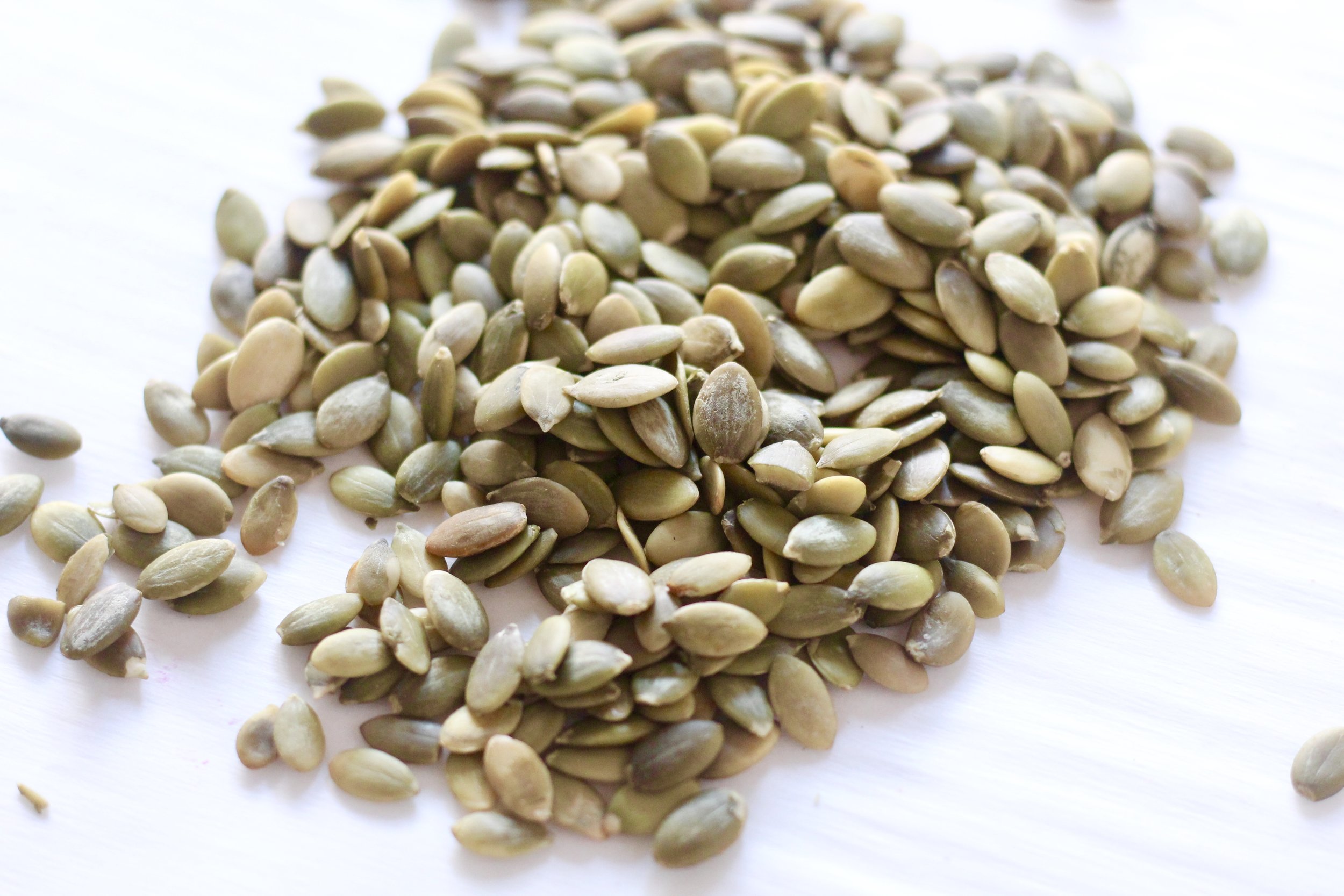
In this post, we’ll look a the relationship between magnesium and diabetes.
We discuss what magnesium does, how magnesium and diabetes are related, and how it impacts blood sugar levels. We’ll also look at how much magnesium you need, and what foods are high in magnesium.
*This article is not intended to provide medical advice, diagnosis, opinion, treatment or services. The article and the links contained in it provide general information for educational purposes only. The information provided in this article is not a substitute for medical care. Do not use it in place of the advice of your physician or registered dietitian. Always consult with your physician before starting a dietary supplement. Magnesium supplements can interact with several medications.*
What does magnesium do?
Magnesium plays a role in over 300 different chemical reactions in our bodies. Healthy magnesium levels may help support:
- Improved exercise performance
- Brain health
- Healthy bones
- Decreased migraines
- Less PMS symptoms
- Glucose metabolism
Magnesium levels can also affect your blood pressure. Research has shown magnesium supplementation may help lower blood pressure in people with existing high blood pressure. And, magnesium may help reduce the risk of cardiovascular disease. Studies have shown that increasing dietary magnesium may reduce the risk of stroke and heart failure.
Is magnesium good for people with diabetes?
Magnesium and type 2 diabetes
But, what about magnesium and diabetes? Research shows magnesium deficiency is associated with an increased risk of type 2 diabetes. (This is also true for Vitamin D.) Magnesium impacts a number of different health markers relevant to people with type 2 diabetes. Below, we walk through what the research tells us about magnesium and:
- Blood sugar levels
- Insulin resistance
- HgbA1c
Magnesium and type 1 diabetes – my personal experience
Over the years, I’ve had my doctor check my magnesium levels many times and have taken a supplement when needed. I’ve gone through times when my levels have been low and I needed a supplement, and others when they’ve been ok.
Magnesium is one of those nutrients to talk with your doctor about yearly and determine if you are in need of a supplement or other intervention.
Magnesium and blood sugar
Magnesium plays a role in blood sugar metabolism and insulin activity in your body. But, does magnesium actually lower blood sugar? Yes, it might.
Magnesium supplementation may modestly lower both fasting blood sugar levels and post-meal blood sugars.
Magnesium and insulin resistance
Supplementing magnesium may decrease insulin resistance and increase insulin sensitivity for people with type 2 diabetes who are deficient in magnesium.
Magnesium and HgbA1c
Magnesium supplementation may also be associated with a decrease in HgbA1c in people with type 2 diabetes.
How much magnesium do people with diabetes need?
The Recommended Dietary Allowance (or RDA) for magnesium is dependent on age and sex, but ranges from 310 mg/day to 420 mg/day for healthy adults. There is not a separate official recommendation for people with diabetes.
Good sources of magnesium
Fiber has been shown to help people with diabetes better manage their blood sugar levels. And, high fiber foods are usually also high in magnesium!
Some foods high in magnesium include:
- beans
- legumes
- whole grains
- broccoli
- squash
- green leafy vegetables
- pumpkin seeds
- almonds
- dairy products
- meats
- chocolate
- coffee
“Hard” water is also considered a decent source of magnesium.

Magnesium in leafy green vegetables
- 1 cup cooked spinach has 157mg
Magnesium in nuts and seeds
- Pumpkin seeds (1 oz) has 168mg
- Chia seeds (1 oz) has 111mg
- Almonds (1 oz) has 80mg
- Cashews (1 oz) has 74mg
- Peanuts (1/4 cup) has 63mg
Magnesium in fruits and vegetables
- 1 banana has 32mg
- 1 cup avocado has 44mg
- 3.5 oz potato has 43mg
- 1 apple has 9mg
More foods that have magnesium
- 1 cup of black beans has 120 mg
- 1 cup soy milk has 61mg
- 1 oz dark chocolate 60-69% cocoa has 50mg
- 8 oz plain yogurt has 42mg
- 1 cup of milk has 24mg
- 3 oz salmon has 26mg
- 3 oz chicken breast has 22mg

Can people with diabetes take a magnesium supplement?
Healthy adults can take a magnesium supplement safely when used appropriately at levels below 350mg/day. Doses above this amount can cause GI distress such as loose stools and diarrhea.
Note: Always consult with your physician before starting a dietary supplement. Magnesium supplements can interact with several medications.
Magnesium and metformin
Can you take metformin and magnesium together? Yes, and it may actually be helpful. Some research shows that metformin may lower magnesium status in some people with type 2 diabetes, thus a magnesium supplement may be needed and helpful.
Want to learn more about diabetes and supplements?
Check out this article on the best vitamins and minerals for diabetes.

This article was updated in March 2024, but originally published in May 2019.
References
- Magnesium enhances exercise performance via increasing glucose availability in the blood, muscle, and brain during exercise, PloS one (2014). https://www.ncbi.nlm.nih.gov/pubmed/24465574
- Efficacy and safety of oral magnesium supplementation in the treatment of depression in the elderly with type 2 diabetes: a randomized, equivalent trial, Magnesium research (2008). https://www.ncbi.nlm.nih.gov/pubmed/19271419
- Magnesium intake and risk of type 2 diabetes: meta-analysis of prospective cohort studies, Diabetes Care (2011). https://www.ncbi.nlm.nih.gov/pubmed/21868780
- An evidence-based review of oral magnesium supplementation in the preventive treatment of migraine, Cephalagia (2015). https://www.ncbi.nlm.nih.gov/pubmed/25533715
- Oral magnesium successfully relieves premenstrual mood changes, Obstetrics and Gynecology (1991). https://www.ncbi.nlm.nih.gov/pubmed/2067759
- Magnesium: Fact Sheet for Health Professionals, National Institutes for Health, (2022). https://ods.od.nih.gov/factsheets/Magnesium-HealthProfessional/
- Dietary Reference Intakes for Calcium, Phosphorus, Magnesium, Vitamin D, and Fluoride. National Academies of Sciences, Engineering, and Medicine. (1997). https://doi.org/10.17226/5776
- The Relationship between Hypomagnesemia, Metformin Therapy and Cardiovascular Disease Complicating Type 2 Diabetes: The Fremantle Diabetes Study, PloS one, (2013). https://www.ncbi.nlm.nih.gov/pmc/articles/PMC3760872/





